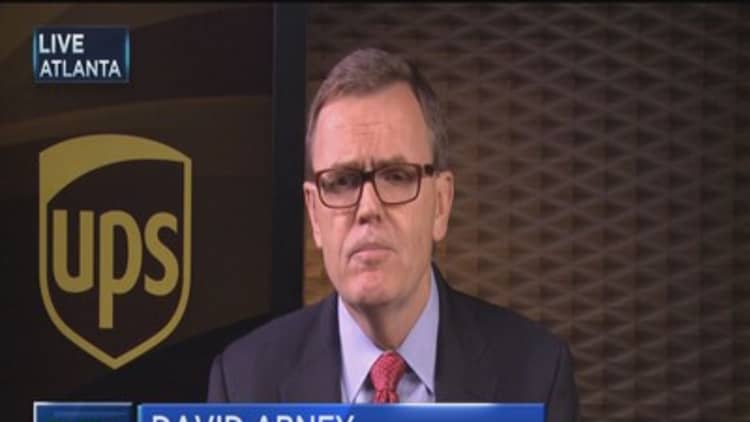


UPS CEO David Abney said he is "very comfortable" with his company's relationship with Amazon.com, one week after The Wall Street Journal reported the relationship between the two had come under stress.
The report raised the possibility of Amazon emerging as a rival to UPS in a bid to process rising package volumes and offset higher shipping costs.
But Abney dismissed the notion that UPS' customers would be better off going it alone.
"We feel that as long as we continue to invest in our business, add the value that we do with our global scale, with our scope of having customers from all different industries that peak at different times in our network, and then having our technology ... really we just don't see how any of our large retailers would be better off without us," he told CNBC's "Squawk on the Street" on Tuesday.
Current and former unnamed executives told the Journal they believe UPS' hub-and-spoke system — which sees packages flow through a sorting center — is becoming obsolete. Amazon.com is instead building regional distribution centers and package sorting centers.
Responding to that claim, Abney said UPS' business "has changed a lot" and anyone familiar with it knows the company has done an "incredible job of expediting the network and taking barriers out and putting more flexibility in."
"I absolutely do not agree that that is a concern. I believe that we are a growing, changing, very flexible company," he said. "We're very comfortable in our position today and five years down the road."
UPS was able to maintain service at a 97 to 98 percent effectiveness rate throughout the peak holiday season after experiencing an uptick in volume in the days leading up to Cyber Monday, Abney said.



